Year 6
The English curriculum is built around the three interrelated strands of language, literature and literacy. Teaching and learning programs should balance and integrate all three strands. Together, the strands focus on developing students' knowledge, understanding and skills in listening, reading, viewing, speaking, writing and creating. Learning in English builds on concepts, skills and processes developed in earlier years, and teachers will revisit and strengthen these as needed.
In Years 5 and 6, students communicate with peers and teachers from other classes and schools, community members, and individuals and groups, in a range of face-to-face and online/virtual environments.
Students engage with a variety of texts for enjoyment. They listen to, read, view, interpret and evaluate spoken, written and multimodal texts in which the primary purpose is aesthetic, as well as texts designed to inform and persuade. These include various types of media texts including newspapers, film and digital texts, junior and early adolescent novels, poetry, non-fiction and dramatic performances. Students develop their understanding of how texts, including media texts, are influenced by context, purpose and audience.
The range of literary texts for Foundation to Year 10 comprises Australian literature, including the oral narrative traditions of Aboriginal and Torres Strait Islander Peoples, as well as the contemporary literature of these two cultural groups, and classic and contemporary world literature, including texts from and about Asia.
Literary texts that support and extend students in Years 5 and 6 as independent readers describe complex sequences, a range of non-stereotypical characters and elaborated events including flashbacks and shifts in time. These texts explore themes of interpersonal relationships and ethical dilemmas within real-world and fantasy settings. Informative texts supply technical and content information about a wide range of topics of interest as well as topics being studied in other areas of the curriculum. Text structures include chapters, headings and subheadings, tables of contents, indexes and glossaries. Language features include complex sentences, unfamiliar technical vocabulary, figurative language, and information presented in various types of graphics.
Students create a range of imaginative, informative and persuasive types of texts such as narratives, procedures, performances, reports, reviews, explanations and discussions.
(source: www.australiancurriculum.edu.au)
Achievement Standard
Receptive modes (listening, reading and viewing)
By the end of Year 6, students understand how the use of text structures can achieve particular effects. They analyse and explain how language features, images and vocabulary are used by different authors to represent ideas, characters and events.
Students compare and analyse information in different and complex texts, explaining literal and implied meaning. They select and use evidence from a text to explain their response to it. They listen to discussions, clarifying content and challenging others' ideas.
Productive modes (speaking, writing and creating)
Students understand how language features and language patterns can be used for emphasis. They show how specific details can be used to support a point of view. They explain how their choices of language features and images are used.
Students create detailed texts elaborating on key ideas for a range of purposes and audiences. They make presentations and contribute actively to class and group discussions, using a variety of strategies for effect. They demonstrate an understanding of grammar, and make considered vocabulary choices to enhance cohesion and structure in their writing. They use accurate spelling and punctuation for clarity and make and explain editorial choices based on criteria.
(source: www.australiancurriculum.edu.au)
- Plus Plan
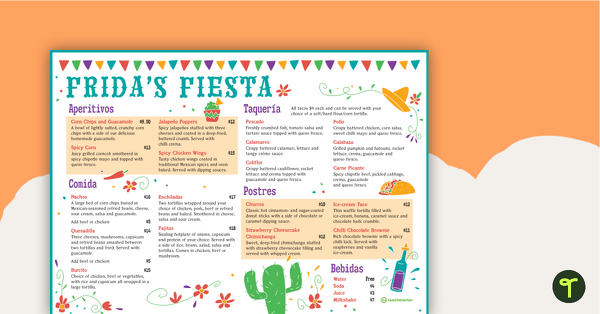
Frida's Fiesta Stimulus – Task Cards
39 activity task cards based on the Frida's Fiesta Restaurant menu stimulus poster.
- Plus Plan
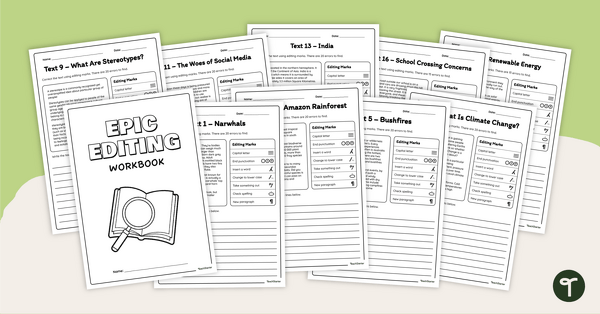
Epic Editing Workbook (Upper Primary)
An editing workbook for upper primary students containing 20 topical texts.
- Plus Plan
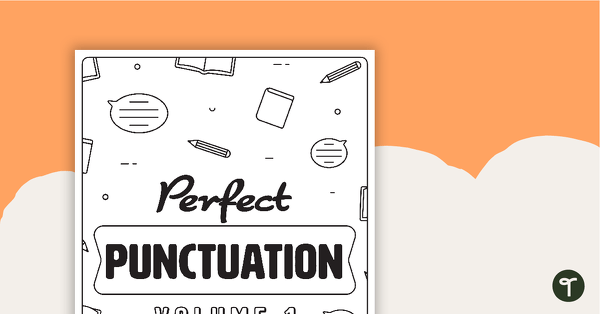
Perfect Punctuation Volume 1 – Worksheet Book
A workbook packed with 50 punctuation activities for use in the classroom.
- Plus Plan
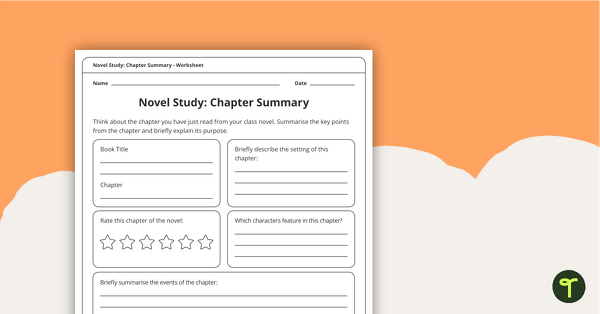
Novel Study – Chapter Summary Worksheet
Reflect on a chapter in a class novel using this one-page worksheet.
- Plus Plan
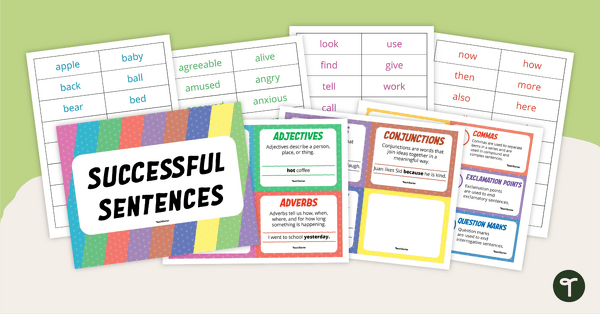
Successful Sentences – Sentence Construction Cards
Word cards for constructing complex sentences.
- Plus Plan
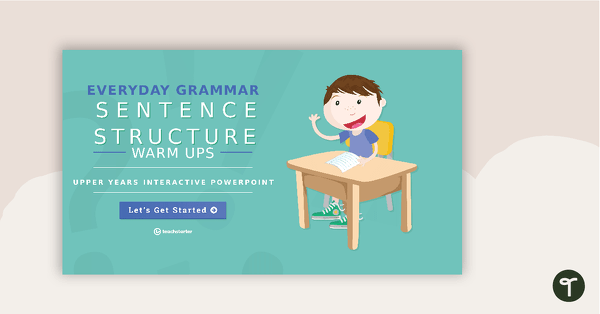
Everyday Grammar Sentence Structure Warm Ups - Upper Years Interactive PowerPoint
An engaging 44 slide interactive PowerPoint to use in the upper years classroom when learning about grammar and sentence structure.
- Plus Plan
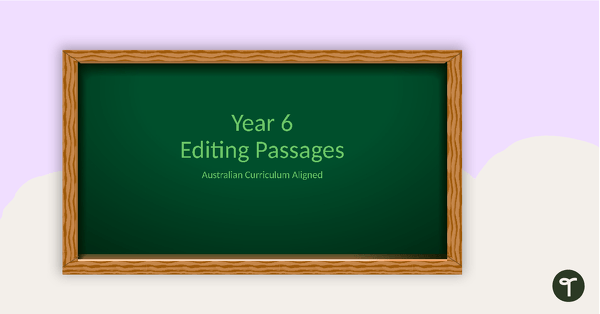
Editing Passages PowerPoint - Year 6
A 42 slide editable PowerPoint template containing editing passages with answers.
- Plus Plan
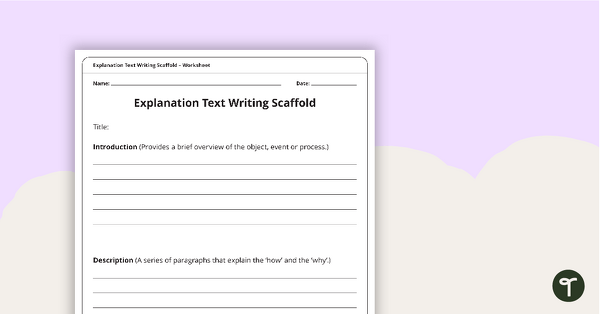
Explanation Texts Writing Scaffold
A scaffolding sheet that can be used to write an explanation text.
- Plus Plan
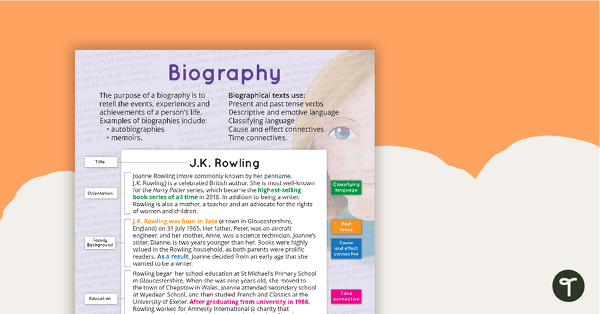
Biography Text Type Poster With Annotations
A poster about the biography text type, including an annotated example.
- Plus Plan
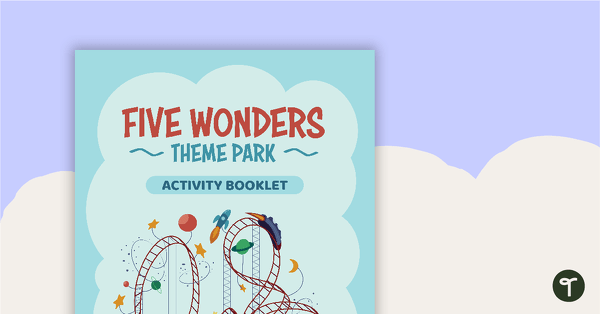
Five Wonders Theme Park: Induction Booklet – Project
A project where students study the Five Wonders Theme Park stimulus poster to understand and use real world learning skills.
- Plus Plan
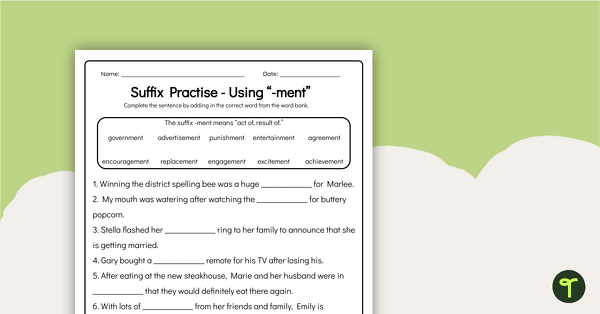
-Ment Suffixes Worksheet
Improve students' understanding of the suffix -ment with a printable suffix worksheet.
- Plus Plan
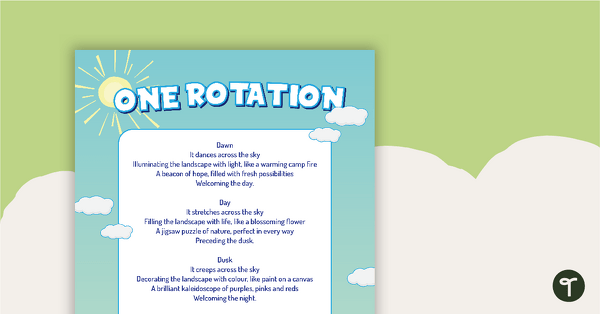
Elements of Poetry Worksheet - Figurative Language
A worksheet to help students understand figurative language in poetry.
- Plus Plan
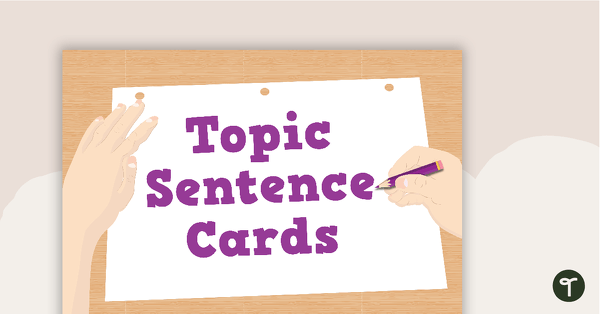
Topic Sentence Starter Cards
A pack of 32 narrative, persuasive and report writing sentence starter cards.
- Plus Plan
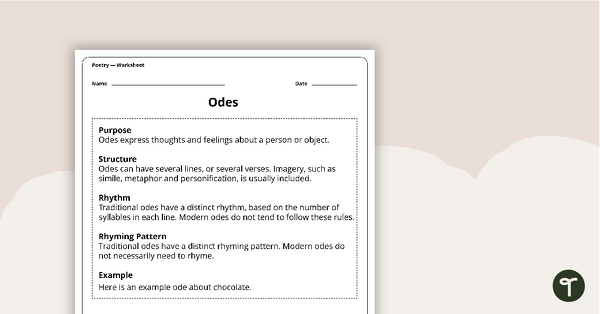
Writing an Ode Worksheet
A 2 page worksheet for students to use when learning how to write an ode.
- Plus Plan
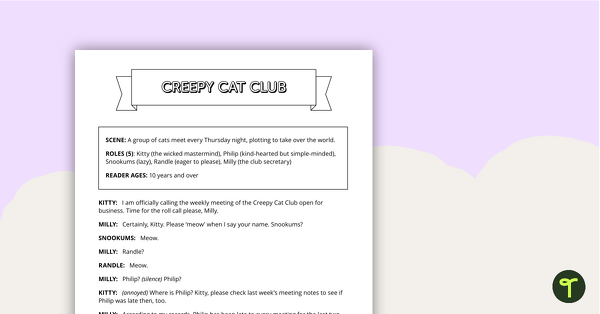
Readers' Theatre Script - Creepy Cat Club
A script which can be used during readers' theatre or Drama sessions, aimed at students 10 years and over.
- Plus Plan
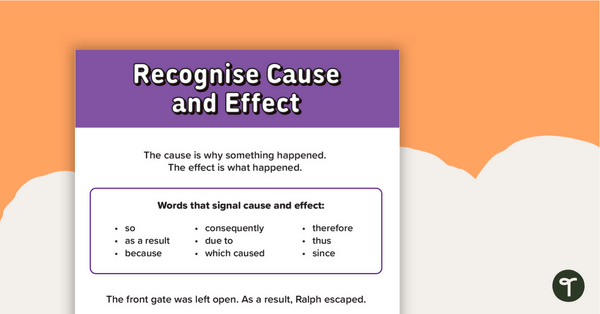
Recognise Cause and Effect Poster
A poster highlighting how to recognise cause and effect when reading a piece of text.
- Plus Plan
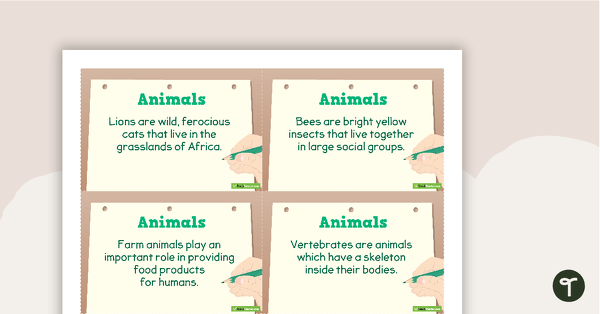
Informative Paragraph Starters - Topic Sentence Cards
20 topic sentences to be used at the beginning of an informative paragraph.
- Plus Plan
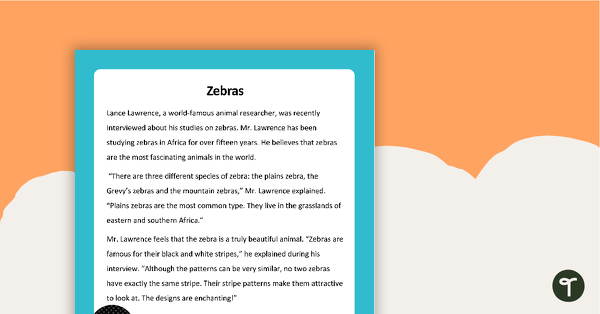
Distinguishing Between Fact and Opinion - Comprehension Task
A task to use when teaching your students reading comprehension strategies.
- Plus Plan
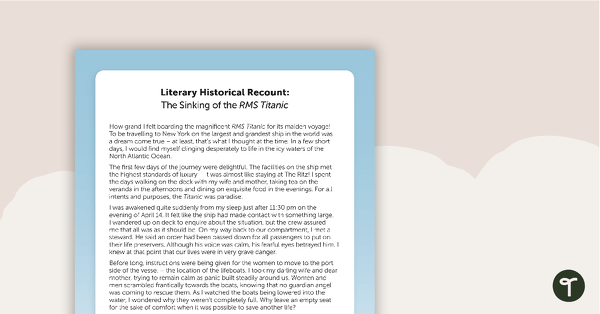
The Sinking of the RMS Titanic - Historical Recounts Comparison Task
A comprehension task to enable students to compare literary historical recounts and factual historical recounts.
- Plus Plan
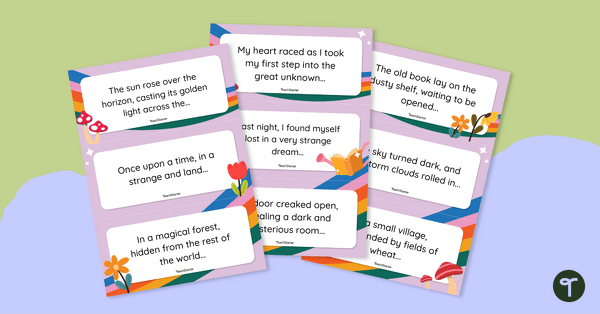
Inspiring Story Starters Task Cards
Get your students writing inspiring stories with this set of story starter task cards.
- Plus Plan
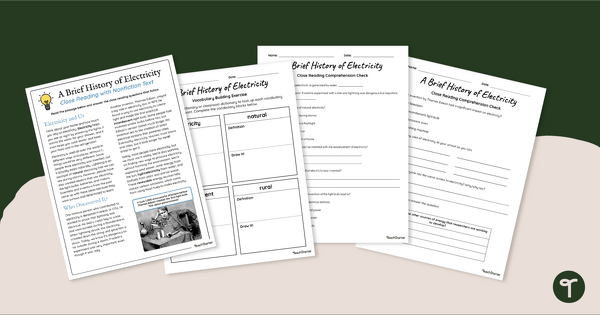
Reading Comprehension Worksheets - The History of Electricity
Read to learn about the history of electricity with printable reading comprehension worksheets.
- Plus Plan
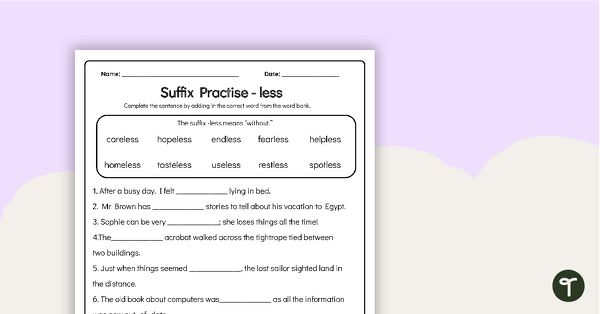
-Less Suffixes Worksheet
Build vocabulary skills with a suffix worksheet featuring the suffix -less.
- Plus Plan
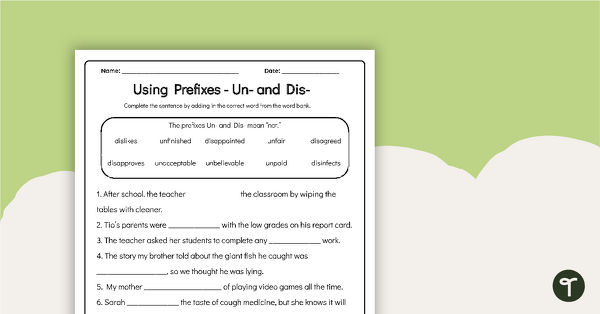
Un- and Dis- Prefixes Worksheet
Build vocabulary skills with a prefix worksheet featuring the prefixes Un- and Dis-.
- Plus Plan
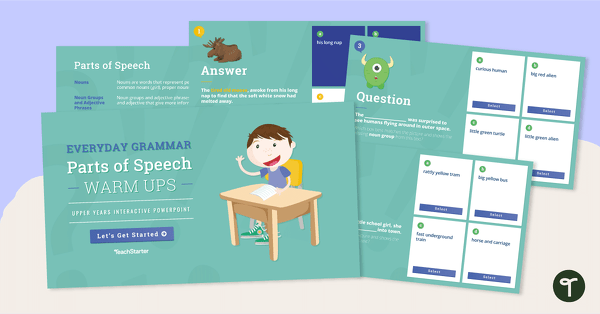
Everyday Grammar Parts of Speech Warm Ups - Upper Years Interactive PowerPoint
Learn and consolidate noun groups, adjectival phrases, adverbial phrases and more with this 44-slide interactive PowerPoint.
- Plus Plan
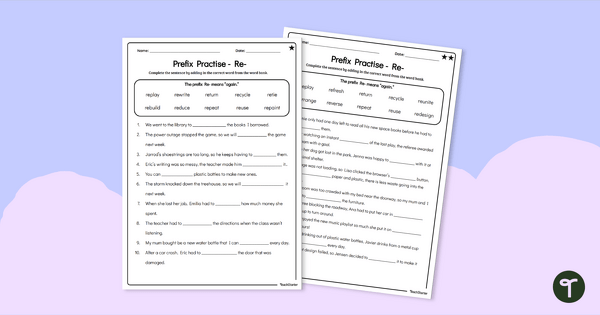
Words with Prefixes Worksheet - Prefix Re-
Build students' understanding of the prefix re-.with a printable prefix worksheet.
- Plus Plan
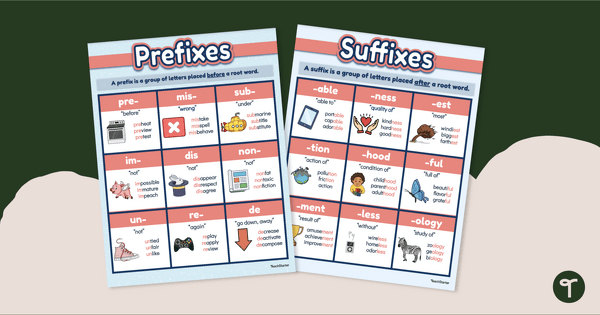
Prefixes and Suffixes Posters
Increase vocabulary skills with anchor charts about common prefixes and suffixes.
- Plus Plan
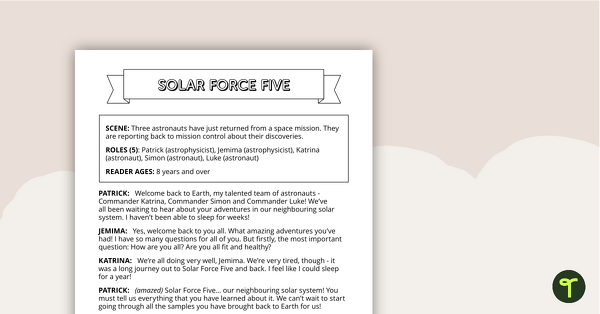
Readers' Theatre Script - Solar Force Five
A script which can be used during readers' theatre or Drama sessions, aimed at students 8 years and over.
- Plus Plan
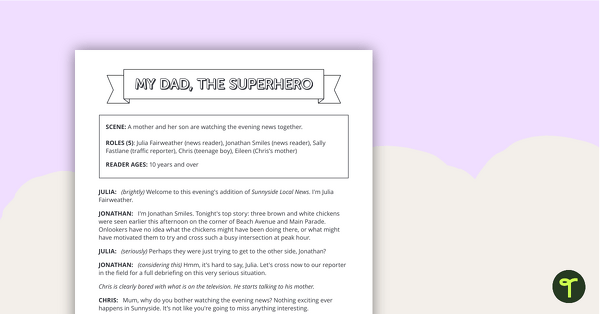
Readers' Theatre Script - My Dad, the Superhero
A script which can be used during readers' theatre or Drama sessions, aimed at students 10 years and over.
- Plus Plan
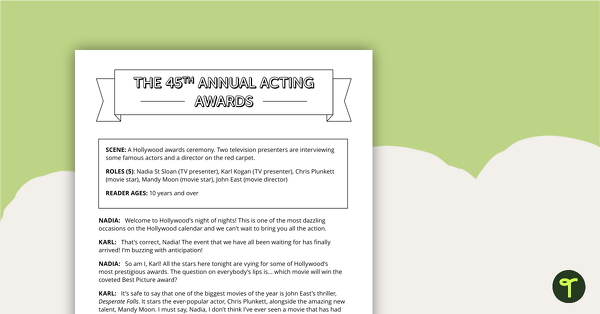
Readers' Theatre Script - 45th Annual Acting Awards
A script which can be used during readers' theatre or Drama sessions, aimed at students 10 years and over.
- Plus Plan
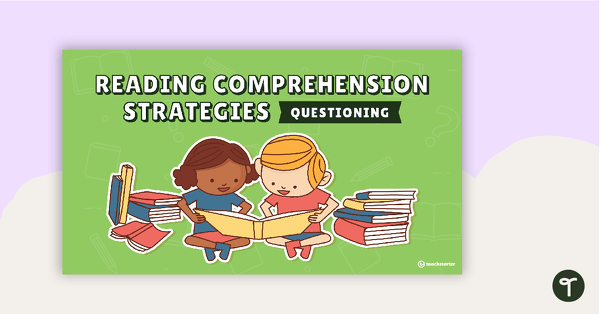
Reading Comprehension Strategies PowerPoint - Questioning
A 15 slide editable PowerPoint template explaining the reading comprehension strategy of questioning.
- Plus Plan
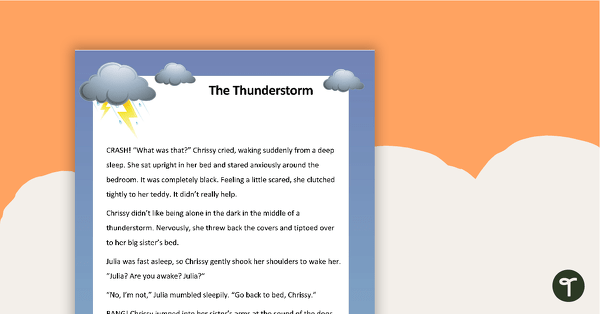
Cause and Effect - Comprehension Task
A task to use when teaching your students reading comprehension strategies.
- Plus Plan
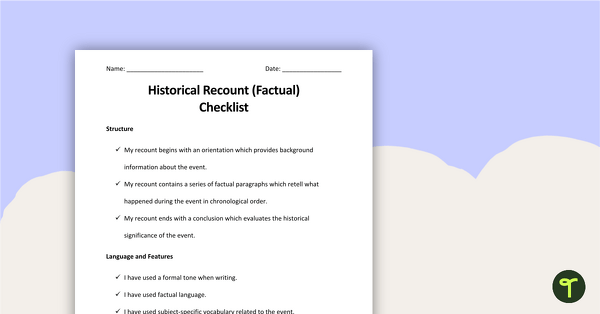
Historical Recount (Factual) Checklist - Structure, Language and Features
A checklist for students to use when proofreading and editing their historical recounts.